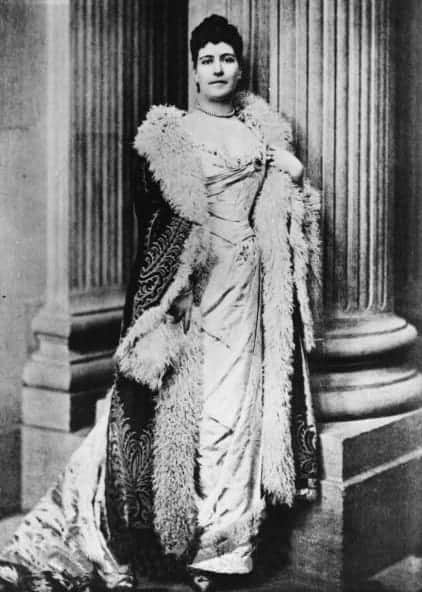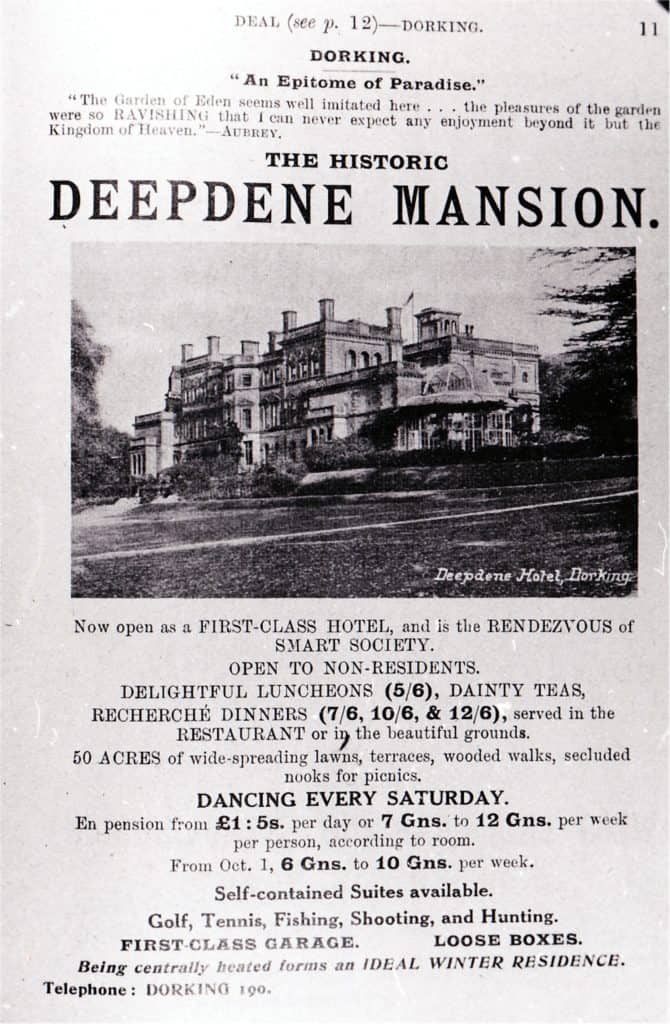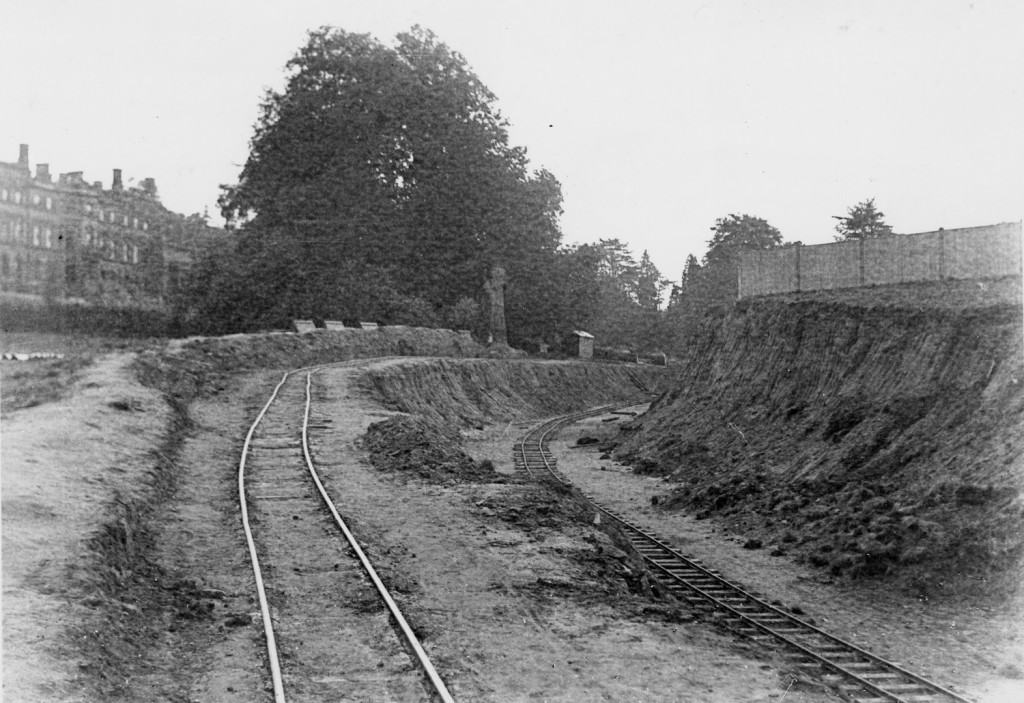Henry Hope’s grandson, Francis, the 8th Duke of Newcastle (1866-1941), only used Deepdene for shooting parties. In 1892, Francis and his guests shot 2812 pheasants, partridges and rabbits there.

He let the house to the dowager Duchess of Marlborough. The Duchess’s nephew Winston Churchill regularly took the train down to Dorking to visit his aunt as a young man. The Prince of Wales was another of the Duchess’s regular guests.

© Dorking Museum
The seeds of Deepdene’s decline were sown in 1849 with the Redhill to Reading railway line cutting through the north of the estate. This was followed in 1867 with the London to Horsham line to the east of the estate. The house was occupied by the military in the First World War. By the 1920s developments in road and rail travel had significantly impacted on the Deepdene. The Duke finally sold the estate in the 1920s. The land nearest to the stations was used for housing and the house became a 90-bedroomed hotel.

© Dorking Museum
But the construction of the Dorking bypass in 1931 brought a busy road within sight of its façade.
In 1939 the house was bought by the Southern Railway to be its wartime headquarters during the Second World War.
With most of the estate’s land sold, consumed by housing, roads or railway tracks Thomas Hope’s great mansion fell into disrepair. The house was demolished in 1969 and an office block erected on the site.

